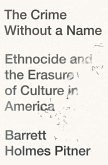"Gideon Bands for work within the race and for work without the race: a message to the colored people of the United States" by Francis J. Grimke offers a powerful and enduring perspective on the challenges and opportunities facing African Americans in the late 19th and early 20th centuries. Grimke, a prominent voice in the era, delivers a series of thought-provoking sermons and addresses centered on racial uplift, self-reliance, and the importance of Christian faith. This collection explores critical themes of race relations, urging unity and collective action within the African American community while also advocating for just and equitable treatment from the wider society. Grimke's work provides invaluable insight into the strategies and aspirations of African American leaders and thinkers during a pivotal period in American history. His emphasis on missionary work and the role of Christianity offers a unique lens through which to examine the complexities of race and identity in the United States. A vital resource for understanding the historical context of race and faith in America. This work has been selected by scholars as being culturally important, and is part of the knowledge base of civilization as we know it. This work is in the public domain in the United States of America, and possibly other nations. Within the United States, you may freely copy and distribute this work, as no entity (individual or corporate) has a copyright on the body of the work. Scholars believe, and we concur, that this work is important enough to be preserved, reproduced, and made generally available to the public. We appreciate your support of the preservation process, and thank you for being an important part of keeping this knowledge alive and relevant.
Bitte wählen Sie Ihr Anliegen aus.
Rechnungen
Retourenschein anfordern
Bestellstatus
Storno







![The Masses Without! A Pamphlet On The Sanatory, Social [&c.] Condition Of The Masses The Masses Without! A Pamphlet On The Sanatory, Social [&c.] Condition Of The Masses](https://bilder.buecher.de/produkte/74/74423/74423320m.jpg)

